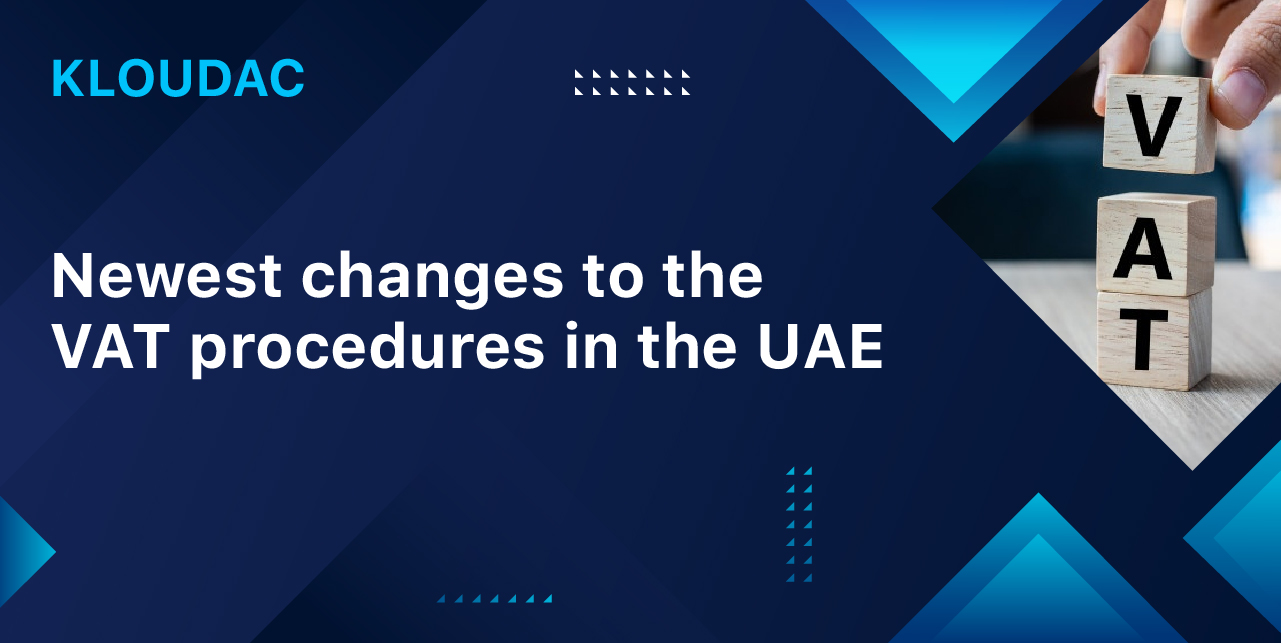In 2018, the United Arab Emirates (UAE) made revisions to its Value Added Tax (VAT) regulations, coinciding with a worldwide trend of increasing VAT usage. This shift has impacted the purchase of VAT-taxable goods and services within the country, making it crucial for businesses to stay current with the updated VAT rules in 2023.
The 2023 VAT rules in the UAE have been introduced by the government to enhance taxation practices, ensure compliance with tax requirements, and prevent penalties. These adjustments have been incorporated into the UAE VAT Decree-Law and have direct implications for businesses operating in the country. Consequently, businesses in the UAE must continually adhere to any new VAT regulations that may emerge.
VAT, or Value Added Tax, is an indirect tax imposed on the total value of goods and services consumed. It is widely employed in numerous countries and is applied to most transactions involving the buying and selling of goods and services. VAT is a fundamental source of revenue for governments, enabling them to finance public services, such as infrastructure development, education, healthcare, and essential facilities.
The UAE has introduced three new VAT regulations set to take effect in 2023, with implementation dates in January, February, March, and June of that year.
In January 2023
VAT rules concerning the Statute of Limitations and related matters were enacted. These rules allow registered individuals to request VAT registration exemptions under specific conditions, enable taxable individuals to recover VAT on imported goods or services, and establish timeframes for tax credit note issuance, among other provisions.
In January 2023, the UAE implemented new VAT rules, which were announced in October 2022. These rules introduced several key changes:
VAT Registration Exception
Registered individuals can request an exception from VAT registration if all their supplies are zero-rated or if they no longer make any supplies other than zero-rated supplies.
VAT Recovery on Imports
Taxable individuals can now recover VAT paid on the import of goods or services incurred before registration, subject to certain requirements.
Tax Credit Note
A Tax Credit Note must be issued within 14 days if the taxpayer intends to adjust the output tax, following the time frame set for issuing tax invoices.
Payment of VAT
Taxable persons must pay VAT to the Federal Tax Authority (FTA) if they issue a tax invoice stating VAT or receive an amount as VAT.
Continuous Supply
The date of issuance of a tax invoice for continuous supply will be 14 days from the date of the supply.
Place of Residence
The place of residence of a principal is now defined as the place of residence of the agent.
FTA Authority
The FTA has the authority to forcibly deregister registered persons in specific cases, without forfeiting the FTA’s right to claim tax dues or administrative penalties.
In February 2023
The Federal Tax Authority (FTA) introduced comprehensive regulations related to new reporting requirements for UAE resident taxpayers. This requirement applies to businesses with annual sales exceeding AED 100 million and aims to track sales by emirate.
In March 2023
Saw an update on voluntary disclosure of VAT errors, removing the threshold for disclosure and introducing fixed fines for errors, potentially resulting in penalties higher than the actual tax liability.
Additionally, the UAE released guidelines on VAT input apportionment techniques in March, offering alternative methods for businesses where standard approaches do not yield equitable outcomes.
In June 2023
The FTA introduced tax clarifications, official documents that provide guidance on specific transactions based on information provided by applicants, without setting a precedent for others.
Key takeaways
Key takeaways from the 2023 VAT rules in the UAE include extended time frames for tax audits, additional audit opportunities following voluntary disclosures, measures against tax evasion, the authority to audit non-registered entities, exemptions for 100% exporters, enhanced compliance for input credit on imported services, rules concerning construction sector payments, and considerations related to deemed supplies to related parties.
These changes reflect a global trend of adapting tax laws to evolving economic conditions and demonstrate the commitment of tax authorities to addressing taxpayer concerns. Businesses operating in the UAE should assess the implications of these amendments and adjust their practices to ensure compliance. Further adjustments to executive regulations are anticipated in the near future.
KLOUDAC Accounting Firm Dubai, UAE
The UAE’s VAT procedures have evolved in response to changing economic conditions and global tax standards. The 2023 changes, including the increase in the VAT rate, mandatory e-invoicing, stricter registration requirements, and the reverse charge mechanism for imports, are all part of the government’s efforts to ensure a fair and efficient tax system. KLOUDAC is a reputed accounting firm that provides full guidance on VAT procedures.
